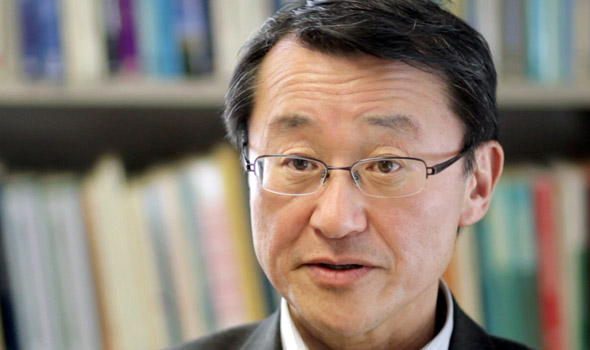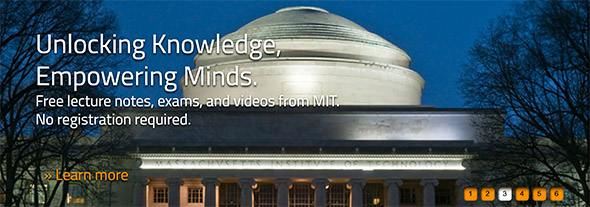THE HUMAN FACTOR SERIES
Solving the political, cultural, and economic dimensions of global issues
Interview with Shigeru Miyagawa
On interdisciplinary approaches to digital learning

“The MIT Office of Digital Learning (ODL) is actively reaching out to faculty across MIT to help them leverage digital learning to improve teaching and learning, and I am glad to be contributing to that."
— Shigeru Miyagawa, Professor of Linguistics, Kochi-Manjiro Professor of Japanese Language and Culture, and Senior Associate Dean for the MIT Office of Digital Learning
October 2017
About The Human Factor Series
MIT is working to advance solutions to major issues in energy, education, the environment, and health. As the editors of the journal Nature have said, framing such questions effectively — incorporating all factors that influence the issue — is a key to generating successful solutions. Science and technology are essential tools for innovation, and to reap their full potential, we need to articulate and solve the many aspects of today’s global issues that are rooted in the political, cultural, and economic realities of the human world. With that in mind, MIT's School of Humanities, Arts, and Social Sciences publishes The Human Factor — a series of interviews that highlight research on the human dimensions of global challenges.
Shigeru Miyagawa, Professor of Linguistics & Kochi-Manjiro Professor of Japanese Language and Culture, was recently appointed as Senior Associate Dean for the MIT Office of Digital Learning (ODL), which oversees MIT’s digital learning initiatives, from OpenCourseWare — which Professor Miyagawa helped pioneer — to MITx and more. MIT Communications spoke with him recently about developments in digital learning.
• • •
Q: What are your goals in this new position at the cutting edge of teaching and learning innovation? And what are the challenges — either in terms of further developing ODL, or in terms of digital education more broadly — that you hope to address in your new role?
I’m excited to be joining ODL at this pivotal time. I’ve had a long history of engagement with OCW, and more recently with MITx and edX. My responsibilities are still under discussion; possibilities include contributing to efforts related to residential education, OCW, and the new Abdul Latif Jameel World Education Lab (J-WEL) initiative.
ODL is actively reaching out to faculty across MIT to help them leverage digital learning to improve teaching and learning, both on campus and globally, and I’m glad to be contributing to that. And there are lots of challenges — such as finding common, shareable solutions that simultaneously improve student learning and leverage faculty expertise and creativity.
Q: Caspar Hare’s online “Introduction to Philosophy” course, and your own innovative MOOC, “Visualizing Japan,” solve certain challenges for effective humanistic courses on digital learning platforms. What advice do you have for MIT's humanistic scholars — thosre in the humanities, arts, and social sciences fields — who wish to develop MOOCs in their fields for MITx and edX?
MIT humanistic scholars interested in digital learning should apply for the MITx Grant Program. ODL staff members Dana Doyle (MOOCs) and Sheryl Barnes (Residential) will meet with faculty to advise on their proposal preparation. The call for proposals is put out twice a year, so if the present round is not right for you, there will be a future one.
ODL is actively seeking to assure that offerings, both Residential and Global MOOCs — as a full course or a component of a course — represent the incredible breadth of MIT’s educational offerings and this is a great time for humanistic scholars to jump in.
I should add that the MIT's humanistic faculty members have played a key role in digital education: there are more courses on OCW from MIT's School of Humanities, Arts, and Social Sciences than from any other school.

“MIT's humanistic faculty members have played a key role in digital education: there are more courses on OpenCourseWare from the School of Humanities, Arts, and Social Sciences than from any other school at MIT.”
— Shigeru Miyagawa, Professor of Linguistics, Kochi-Manjiro Professor of Japanese Language and Culture, and Senior Associate Dean for the MIT Office of Digital Learning
Q: As an early pioneer of digital education, you’ve been a close observer of the field’s development over the past fifteen years. What do you think is the next frontier in digital education?
I believe that video, in various forms, will play a larger role in how we teach and learn. When it comes to educational video production, we are still at the starting line. When the team led by Thomas Edison invented the motion picture camera, people didn’t know what to film, so they placed the camera in front of a live stage. Essentially that’s where we are now. If you look at YouTube, you see hints of how individuals – not even experts — can casually produce incredibly compelling video. Lightboard, a simple technology being used by the physics department to capture video, is another example.
Along with video, there are ideas now being explored at ODL and across the Institute that interest me. These include personalized and adaptive learning, research-based teaching practices, and better measurements for what students learn. Lots of work to do!
Q: Collaboration across the institute is a cornerstone of the ODL’s mission. As President Reif has said, solving the great challenges of our time will require multidisciplinary problem-solving — bringing together expertise and ideas from the Humanistic and STEM fields. Can you talk about how collaborations between technologists and humanistic scholars have influenced the development of digital learning technologies?
Esther Duflo’s MicroMaster program in Data, Economics, and Development Policy (DEDP) is a good example of a project that draws from interdisciplinary resources. Students who successfully complete the five online-course curriculum of the DEDP MicroMaster can apply to the new accelerated master’s program in the MIT Department of Economics. They only need to spend one semester on campus. But the idea of MicroMaster like this was originally developed for the Supply Chain Management masters program. So it’s a great example of traditional and new learning platforms as well as cross-pollination between fields.
I am also pursuing a collaboration with Boris Katz in CSAIL and colleagues at the Hong Kong University of Science and Technology. We are designing a prototype to assist online learners by using AI technology. Through AI interventions, we are going to test to see if we can address the large attrition rate, a big issue with MOOCs.
Suggested links
MIT Office of Digital Learning
MIT Global Studies and Languages
Interview prepared by MIT SHASS Communications
Series Editor: Emily Hiestand
Photograph of Professor Miyagawa by Melanie Gonick, MIT News
Interview published October 2017